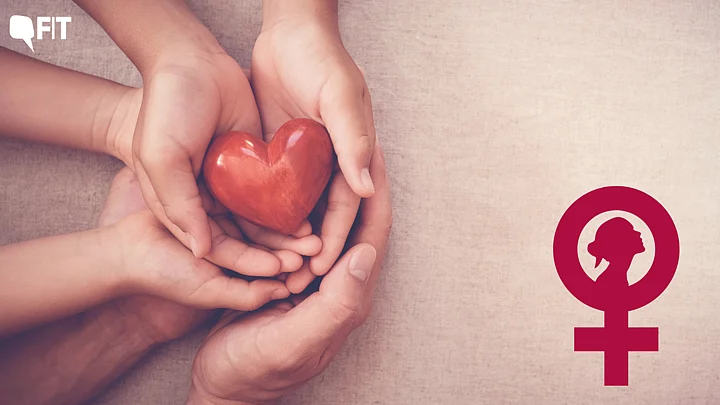Heart disease has long been recognised as the silent killer, but for Indian women, breaking the silence surrounding it is crucial.
In a country where heart health often takes a backseat amidst numerous other pressing health concerns, it is imperative to recognise the unique challenges women face regarding cardiovascular health.
According to the Indian Heart Association, a woman's lifetime risk of dying from heart disease is eight times greater than that of breast cancer.
This staggering statistic underscores the urgent need for action to address heart health issues among Indian women.
Contrary to popular belief, hypertension is not solely a concern for men. In fact, it affects a significant portion of the female population in India.
More than 21 percent of Indian women suffer from high blood pressure, yet only a mere 7 percent of diagnosed women are currently receiving treatment for hypertension.
This discrepancy highlights a concerning gap in awareness and access to healthcare services for women's heart health in India.
Invisible but Not Absent: The Many Factors Affecting Women’s Health
Further, in this respect, although globally the prevalence of CVD among women has been declining, with an overall decrease of 4.3 percent since 1990, some of the world’s most populous nations have seen an increase in CVD, including China (10 percent increase), Indonesia (7 percent), and India (3 percent).
This trend underscores the importance of targeted interventions to address the rising burden of heart disease among women in India.
One of the reasons hypertension is often under-recognised among women is due to implicit biases that assume young women are inherently healthy.
However, as women age, they become increasingly susceptible to hypertension and its associated cardiovascular complications.
Conditions such as Polycystic Ovary Syndrome (PCOS), early menopause, and gestational diabetes further elevate the risk of heart disease among women. Therefore, it is essential for women to monitor their blood pressure regularly, as hypertension progresses faster once it appears.
The impact of hypertension extends beyond physical health and affects women's socio-economic status and overall quality of life.
As primary caregivers and household managers, women play pivotal roles in their families. When they are afflicted by hypertension or other heart-related conditions, it not only jeopardises their health but also imposes significant financial burdens on their families.
Studies have shown that women are more likely to have delayed diagnoses of hypertension and therefore experience further delays in receiving correct and timely treatment, resulting in poorer outcomes following a heart attack.
Empower Indian Women To Take Control of Their Health
Empowering Indian women to take control of their heart health begins with education, regular screenings, and healthy lifestyle choices.
Unhealthy habits such as smoking, excessive alcohol consumption, and physical inactivity significantly increase the risk of hypertension among women.
According to research, women who smoke are twice as likely to develop high blood pressure compared to non-smokers.
Similarly, consuming more than two alcoholic drinks per day can also lead to an increased risk of hypertension.
Furthermore, leading a sedentary lifestyle and lacking regular physical activity can contribute to the development of hypertension.
With busy schedules and household responsibilities, many Indian women do not prioritise regular exercise, which can lead to weight gain and increase their chances of developing high blood pressure.
Encouraging women to adopt balanced diets rich in fibre, fruits, vegetables, and whole grains while minimising salt and processed foods intake can greatly reduce the risk of heart disease.
Diets high in saturated and trans fats have been linked to increased incidences of cardiovascular diseases among women.
Additionally, consuming foods high in salt can lead to water retention in the body, putting extra strain on the heart and raising blood pressure levels.
Similarly, diets high in processed foods and refined sugars can contribute to weight gain and increase the likelihood of developing high blood pressure.
Accessibility & Awareness: Key to Reducing the Burden of Hypertension
Regular blood pressure screenings are essential for early detection and intervention. It is recommended that adults undergo annual blood pressure checks, with more frequent screenings for those at higher risk due to factors such as family history or obesity.
Moreover, regular follow-up with healthcare professionals ensures proper monitoring and management of blood pressure levels, minimising the risk of complications.
Policy makers also have a crucial role to play in promoting women's heart health. This includes ensuring access to affordable healthcare services, launching public awareness campaigns, and supporting gender-specific research in cardiovascular diseases.
By addressing these factors comprehensively, we can empower Indian women to lead healthier lives and reduce the burden of hypertension on society.
Cardiovascular diseases among women on the rise in India, finds The Lancet researchers urge action to reduce the burden of CVD - China and Indonesia are other populous nations showing an increase in the disease.
As we commemorate International Women's Day, we must challenge stereotypes and take control of our heart health.
By prioritising prevention, awareness, and access to healthcare, we can pave the way for a healthier, happier future for women in India.
Let us empower ourselves and each other to make heart health a priority, not just today, but every day. Together, we can break the silence surrounding heart disease and ensure that all women have the opportunity to live long, healthy lives.
(Dr Fauzia Khan is an Hon’ble Member of Parliament in the Rajya Sabha. This is an opinion piece and the views expressed above are the author’s own. The Quint neither endorses nor is responsible for them.)

